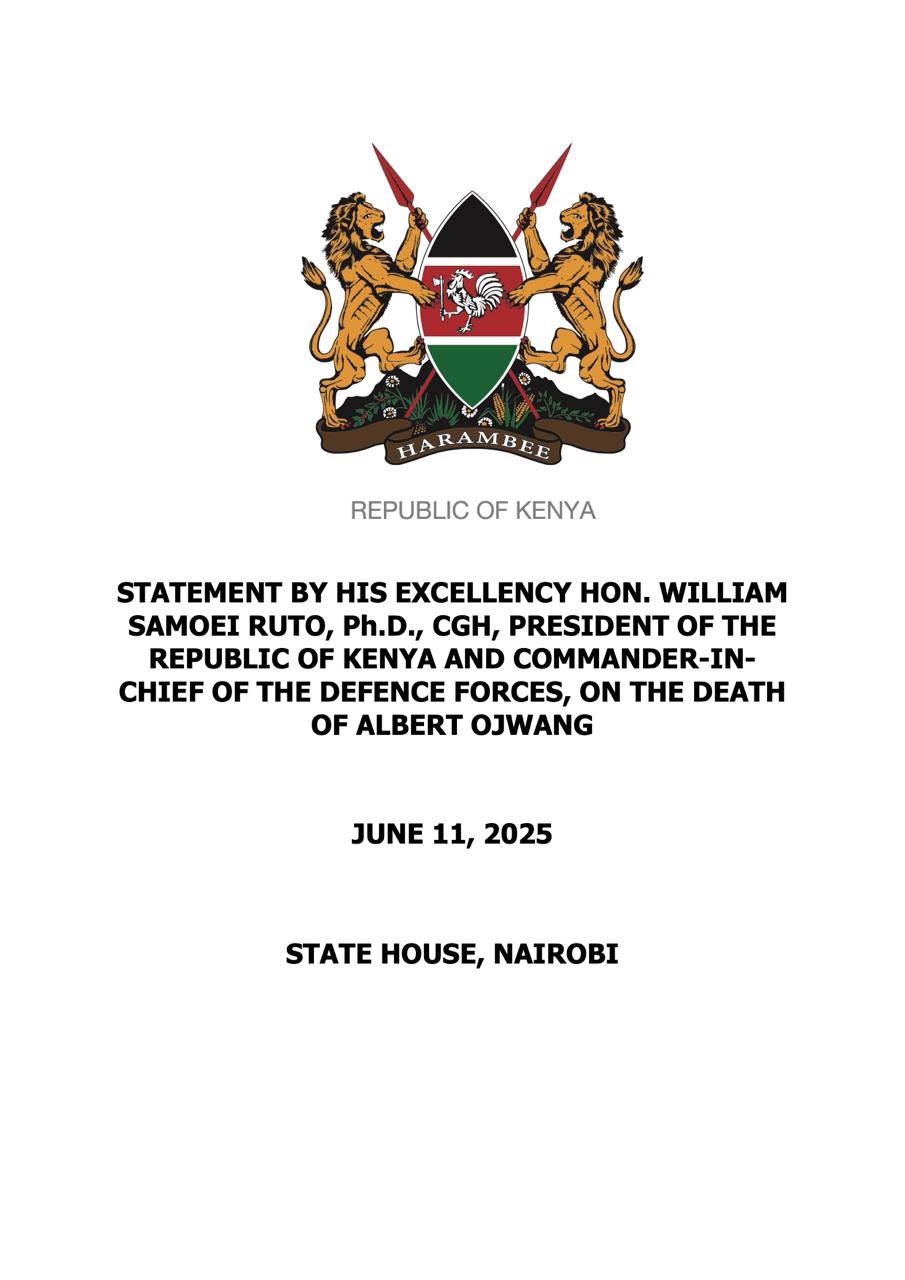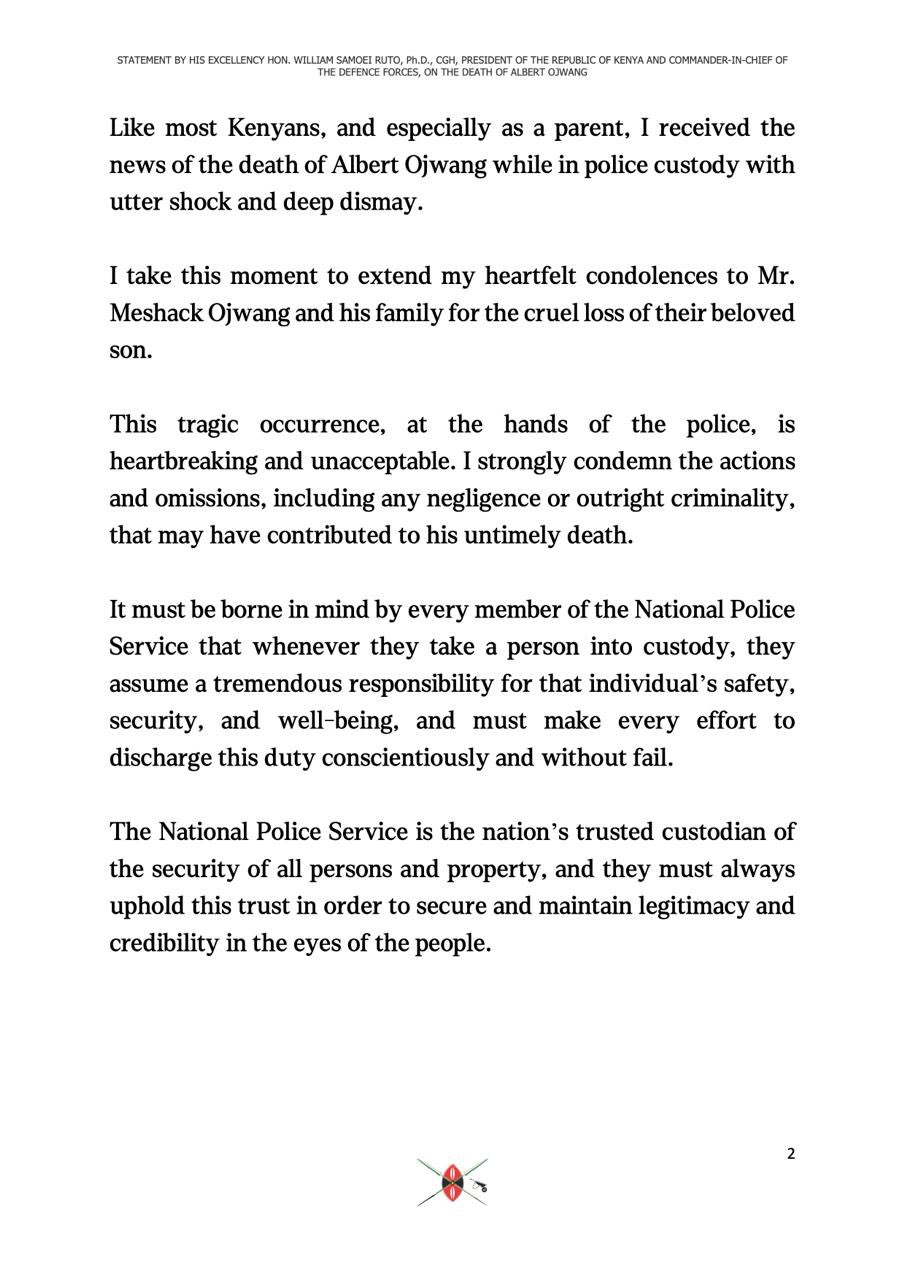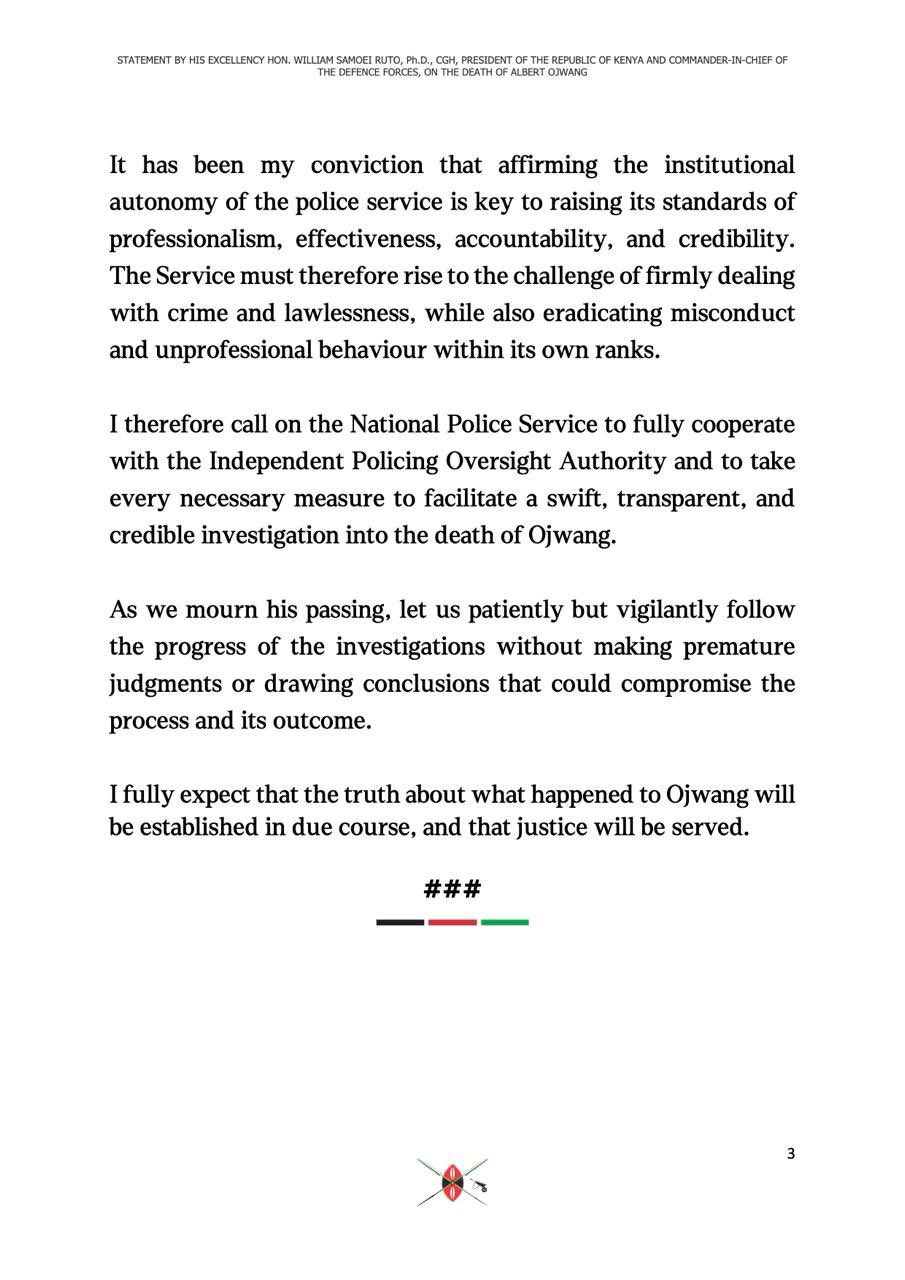 President William Ruto has condemned the death of Albert Ojwang in police custody and instructed the National Police Service to work “swiftly, transparently, and credibly” with the Independent Policing Oversight Authority (IPOA) to determine what happened.
President William Ruto has condemned the death of Albert Ojwang in police custody and instructed the National Police Service to work “swiftly, transparently, and credibly” with the Independent Policing Oversight Authority (IPOA) to determine what happened.
Ojwang was tortured while in police custody, before being dumped at Central Police Station in bad shape. He would soon be transferred to Mbagathi Hospital where he was declared dead on arrival.
Like many Kenyans, the Head of State said he learned of Ojwang’s death “with utter shock and deep dismay.” He offered condolences to Ojwang’s father, Meshack, and the entire family for “the cruel loss of their beloved son.”
“This tragic occurrence, at the hands of the police, is heartbreaking and unacceptable. I strongly condemn the actions and omissions, including any negligence or outright criminality, that may have contributed to his untimely death,” the President declared in a statement released Wednesday afternoon.
Holding Police to Account
Ruto reminded officers that taking anyone into custody comes with a “tremendous responsibility” for that person’s safety, security, and well-being. He argued that protecting detainees is essential if police hope to retain credibility in the eyes of the public.
The President also linked lasting reform to genuine autonomy, insisting that an independent service can raise its own standards of professionalism and weed out misconduct. “The Service must rise to the challenge of firmly dealing with crime and lawlessness, while also eradicating misconduct and unprofessional behaviour within its own ranks,” he said.
Ruto’s directive to the Police Service is to cooperate fully with IPOA, take every necessary measure to facilitate the probe, and keep the public informed without compromising the case. He urged Kenyans to follow developments “patiently but vigilantly” and to avoid premature judgments that might derail the process.
“I fully expect that the truth about what happened to Ojwang will be established in due course, and that justice will be served,” the President concluded.
Ojwang’s death on June 8 at Nairobi Central Police Station sparked public outrage and renewed scrutiny of Kenya’s record on police accountability.
IPOA has already launched a parallel inquiry, and human-rights organisations say they will monitor whether officers comply with summonses, share evidence, and protect witnesses.
Full Statement:





